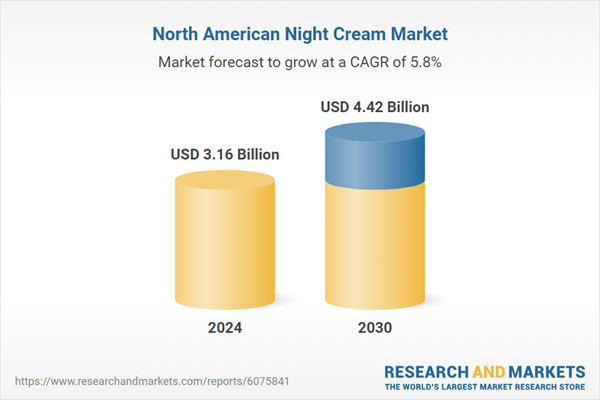Speak directly to the analyst to clarify any post sales queries you may have.
10% Free customizationThis report comes with 10% free customization, enabling you to add data that meets your specific business needs.
Key Market Drivers
Increasing Awareness of Skincare Benefits
A primary driver in the North America night cream market is the growing consumer understanding of the role skincare plays in overall wellness and appearance. Night creams are formulated to support the skin’s overnight repair cycle, offering deeper hydration and nourishment compared to daytime creams. With increased exposure to skincare education via digital media, influencers, and dermatological content, consumers are recognizing the need for dedicated nighttime products as part of their routine. Brands are capitalizing on this by highlighting the restorative properties of night creams, which are designed to counteract environmental damage and support collagen production while the body is at rest. This shift in awareness is prompting more consumers to incorporate specialized products like night creams into their daily regimens, contributing significantly to market growth.Key Market Challenges
Intense Competition in the Market
The North American night cream segment faces intense competition, with numerous players vying for market share. Dominated by established brands such as Estée Lauder, Olay, and L'Oréal, the market is also witnessing the emergence of niche and indie brands that differentiate through clean, vegan, and cruelty-free claims. With an influx of product options, brands are under pressure to stand out through innovation, performance, and marketing. Additionally, as consumers become more informed and discerning, brand loyalty is increasingly driven by transparency, ingredient efficacy, and ethical positioning. Maintaining consumer trust and relevance in this saturated market requires continual investment in R&D and compelling brand narratives, which can strain resources for both new entrants and established players.Key Market Trends
Personalization and Custom Skincare
The demand for customized skincare products, including night creams, is becoming a defining trend in the market. Consumers are seeking personalized solutions tailored to their unique skin types and concerns, such as dryness, acne, hyperpigmentation, or aging. Brands are leveraging technology to offer tailored product recommendations via online skin assessments, AI-based diagnostic tools, and interactive quizzes. Some even allow for ingredient customization during the purchase process. This approach enhances product efficacy and consumer satisfaction, fostering deeper brand engagement and loyalty. As personalization becomes more mainstream, brands offering customized night cream solutions are positioned to gain a competitive edge.Key Market Players
- Kanebo Cosmetics Inc.
- Unilever plc
- Solstice Holding Inc.
- Shiseido Americas Corporation
- The Estée Lauder Companies Inc.
- L'Oréal S.A.
- Beiersdorf, Inc.
- Avon Products Inc.
- Revlon Inc.
- Clinique Laboratories, LLC
Report Scope:
In this report, the North America Night Cream Market has been segmented into the following categories, in addition to the industry trends which have also been detailed below:North America Night Cream Market, By Product Type:
- Moisturizing Cream
- Anti-Aging Cream
- Skin Whitening Cream
- Others
North America Night Cream Market, By Sales Channel:
- Supermarkets/Hypermarkets
- Multi-Branded Stores
- Online
- Others
North America Night Cream Market, By Country:
- United States
- Canada
- Mexico
Competitive Landscape
Company Profiles: Detailed analysis of the major companies present in the North America Night Cream Market.Available Customizations:
With the given market data, the publisher offers customizations according to a company's specific needs. The following customization options are available for the report.Company Information
- Detailed analysis and profiling of additional market players (up to five).
This product will be delivered within 1-3 business days.
Table of Contents
Companies Mentioned
- Kanebo Cosmetics Inc.
- Unilever plc
- Solstice Holding Inc.
- Shiseido Americas Corporation
- The Estee Lauder Companies Inc
- L'Oreal S.A.
- Beiersdorf, Inc.
- Avon Products Inc.
- Revlon Inc.
- Clinique Laboratories, LLC
Table Information
| Report Attribute | Details |
|---|---|
| No. of Pages | 131 |
| Published | April 2025 |
| Forecast Period | 2024 - 2030 |
| Estimated Market Value ( USD | $ 3.16 Billion |
| Forecasted Market Value ( USD | $ 4.42 Billion |
| Compound Annual Growth Rate | 5.8% |
| Regions Covered | North America |
| No. of Companies Mentioned | 10 |









